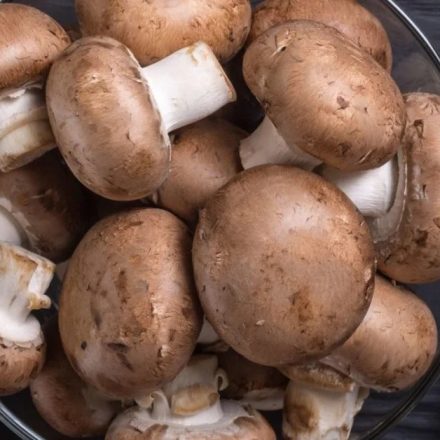
Exploring Hemp Edibles: The Science of Cannabinoid Consumption
In recent years, hemp edibles like Delta-8 chocolates, Delta-9 gummies, and CBN gummies have gained massive popularity in the wellness industry. But what exactly happens when you consume cannabinoids through edibles? By understanding how factors like bioavailability, onset time, and effects work, you can make more informed choices about using hemp edibles.
How Your Body Processes Cannabinoids
According to Resident, when you eat a hemp edible, the cannabinoids first need to pass through your digestive system before entering your bloodstream. Unlike smoking or vaping, where cannabinoids are absorbed quickly via the lungs, edibles take longer to break down. The liver plays a critical role—after metabolizing the cannabinoids, they enter the bloodstream and eventually interact with the brain, engaging the endocannabinoid system (ECS).
The ECS regulates a variety of functions, including mood, appetite, pain, and sleep. Cannabinoids like Delta-8, Delta-9, and CBN bind to cannabinoid receptors in the body, affecting the release of neurotransmitters. This interaction produces the calming, euphoric, or pain-relieving effects that hemp edibles are known for.
Cannabinoid Types Available Online
When shopping for hemp edibles online, you’ll come across various cannabinoids, each offering different effects. Here’s a breakdown of the most common ones and their characteristics.
Delta-8
Delta-8 THC offers a milder, more controlled high compared to Delta-9. Found in edibles like gummies and chocolates, Delta-8 provides relaxation and calmness without the intensity of traditional THC, making it a great choice for unwinding without overwhelming effects.
Delta-9
Delta-9 THC is the primary psychoactive component in cannabis and is associated with stronger, euphoric effects. Delta-9 edibles are widely available, but it’s crucial to understand the legal distinction. Hemp-derived Delta-9 is federally legal if the product contains no more than 0.3% Delta-9 THC by dry weight, although regulations may vary by state.
THCA
THCA (Tetrahydrocannabinolic Acid) is the precursor to Delta-9 THC. While THCA itself isn’t psychoactive, it converts to THC when exposed to heat through a process called decarboxylation. THCA is most commonly consumed by smoking or vaping, and it’s less commonly found in edible form.
CBN
CBN (Cannabinol) is gaining popularity for its sedative properties, often found in products aimed at sleep and relaxation. It’s usually combined with other cannabinoids in gummies or tinctures to boost its calming effects, making it a great option for winding down at night.
Bioavailability: Why Edibles Feel Different Than Inhaling
A key aspect of hemp edibles is bioavailability—the percentage of cannabinoids that actually reach your bloodstream. Inhaling cannabinoids generally offers higher bioavailability since it bypasses digestion, while edibles lose some potency during digestion and liver metabolism.
However, the effects of edibles tend to be stronger and longer-lasting. This is because the body converts Delta-9 THC into 11-hydroxy-THC, a more potent metabolite with a longer half-life. This conversion is why many users report that edibles offer a deeper, more prolonged high than smoking or vaping.
Onset Time and Duration: Patience Is Essential
One of the most frequently asked questions about hemp edibles is: how long do they take to kick in? The answer depends on factors like your metabolism, the specific edible, and whether you’ve eaten recently.
Edibles usually take between 30 minutes and two hours to take effect, which can lead to confusion for first-time users who expect immediate results and may consume too much. Once the effects begin, they can last anywhere from 4 to 8 hours—significantly longer than inhaled cannabinoids, which typically wear off after 2 to 3 hours.
That’s why it’s essential to start with a small dose and be patient. Hemp edibles like Delta-8 chocolates or Delta-9 gummies take longer to peak but often deliver a more sustained and intense experience.
Why Edibles Affect People Differently
An interesting aspect of hemp edibles is how differently they affect individuals. Several factors, such as body weight, metabolism, tolerance, and even what you’ve eaten, can influence the experience.
For instance, someone with a faster metabolism may feel the effects of Delta-8 chocolates more quickly than someone with a slower metabolic rate. Eating an edible on an empty stomach might also lead to quicker onset, whereas eating it after a meal can delay the effects. Genetics also play a part, as some people are more sensitive to cannabinoids, while others require a higher dose to achieve the same effects.
A Unique Experience
Hemp edibles provide a distinct experience compared to smoking or vaping, offering a slower onset but longer-lasting effects. Whether you’re using Delta-8 chocolates for gentle relaxation, Delta-9 gummies for a euphoric high, or CBN gummies for sleep, knowing how edibles work can help you get the most out of your experience.
Remember, patience is key. Start with a small dose, wait for the effects to build, and enjoy the longer-lasting journey that hemp edibles provide.




